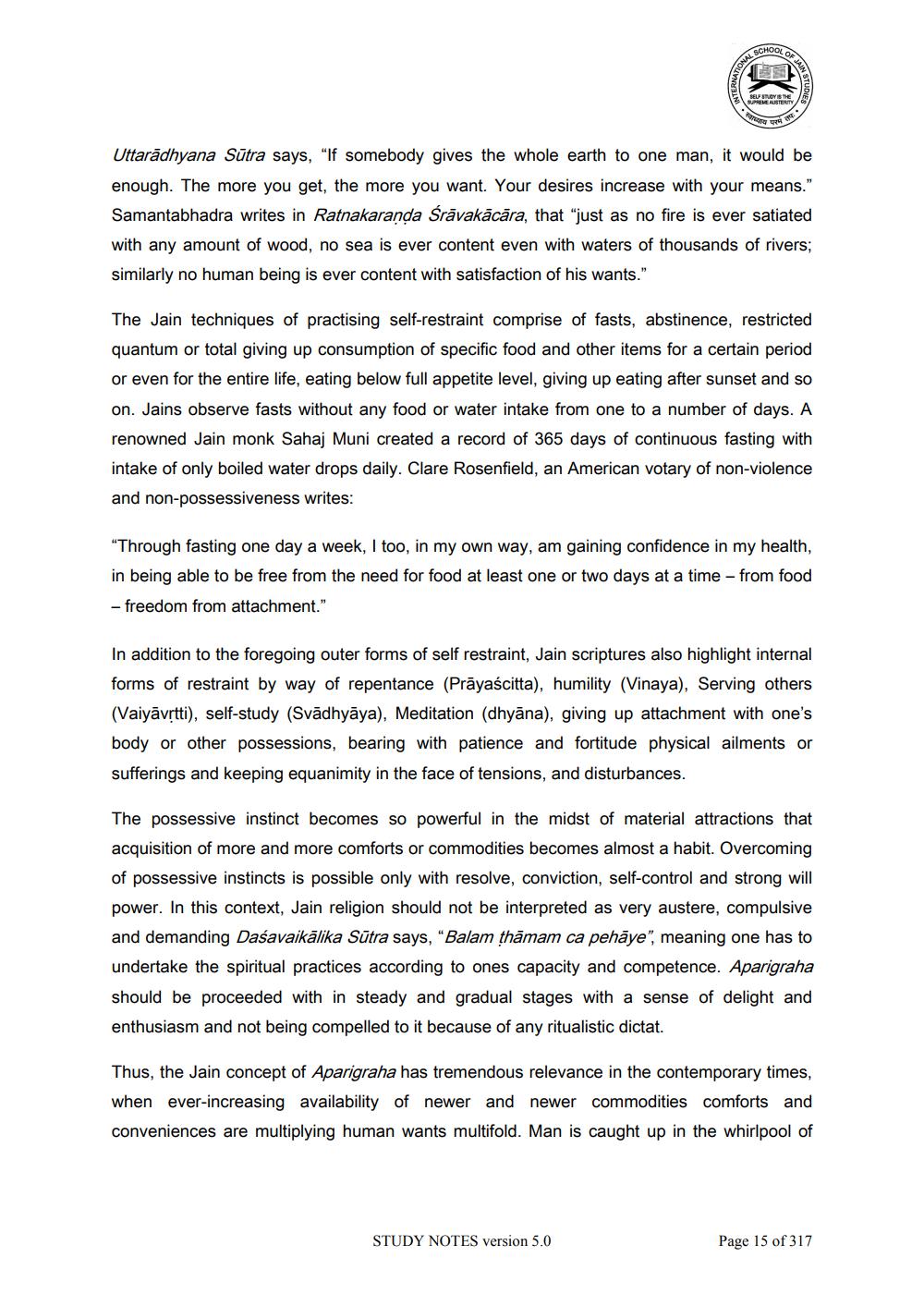________________
Uttarādhyana Sūtra says, "If somebody gives the whole earth to one man, it would be enough. The more you get, the more you want. Your desires increase with your means." Samantabhadra writes in Ratnakaranda Śrāvakācāra, that “just as no fire is ever satiated with any amount of wood, no sea is ever content even with waters of thousands of rivers, similarly no human being is ever content with satisfaction of his wants."
The Jain techniques of practising self-restraint comprise of fasts, abstinence, restricted quantum or total giving up consumption of specific food and other items for a certain period or even for the entire life, eating below full appetite level, giving up eating after sunset and so on. Jains observe fasts without any food or water intake from one to a number of days. A renowned Jain monk Sahaj Muni created a record of 365 days of continuous fasting with intake of only boiled water drops daily. Clare Rosenfield, an American votary of non-violence and non-possessiveness writes:
“Through fasting one day a week, I too, in my own way, am gaining confidence in my health, in being able to be free from the need for food at least one or two days at a time - from food - freedom from attachment."
In addition to the foregoing outer forms of self restraint, Jain scriptures also highlight internal forms of restraint by way of repentance (Prāyaścitta), humility (Vinaya), Serving others (Vaiyāvrtti), self-study (Svādhyāya), Meditation (dhyāna), giving up attachment with one's body or other possessions, bearing with patience and fortitude physical ailments or sufferings and keeping equanimity in the face of tensions, and disturbances.
The possessive instinct becomes so powerful in the midst of material attractions that acquisition of more and more comforts or commodities becomes almost a habit. Overcoming of possessive instincts is possible only with resolve, conviction, self-control and strong will power. In this context, Jain religion should not be interpreted as very austere, compulsive and demanding Daśavaikālika Sūtra says, "Balam thāmam ca pehāye", meaning one has to undertake the spiritual practices according to ones capacity and competence. Aparigraha should be proceeded with in steady and gradual stages with a sense of delight and enthusiasm and not being compelled to it because of any ritualistic dictat.
Thus, the Jain concept of Aparigraha has tremendous relevance in the contemporary times, when ever-increasing availability of newer and newer commodities comforts and conveniences are multiplying human wants multifold. Man is caught up in the whirlpool of
STUDY NOTES version 5.0
Page 15 of 317




